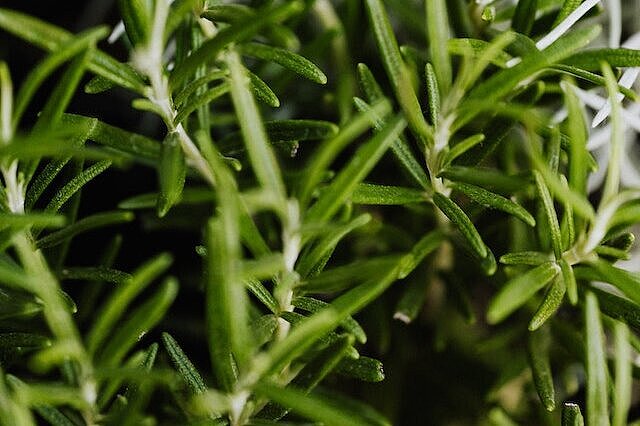Monk's pepper

Monk's pepper is a medicinal herb that can regulate hormone levels in dogs. It is mainly used for male dogs that are aggressive or dominant and for bitches that suffer from false pregnancy or fertility problems. In this article you will find out what monk's pepper is, how it works and how to dose it correctly for your dog.
What is monk's pepper?
Monk's pepper (Vitex agnus-castus) is a plant from the labiate family. It grows mainly in the Mediterranean region and has purple flowers and brown fruits that look like peppercorns. The name monk's pepper comes from the fact that the plant used to be known as a chaste herb and was used by monks for seasoning.
The fruits of the monk's pepper contain various ingredients that have an effect on the hormone system. These include flavonoids, essential oils and other minerals. These substances can inhibit the hormone prolactin, which is responsible, among other things, for milk production in mothers after giving birth. Prolactin also influences the sex hormones oestrogen and testosterone, which are important for the behavior and reproduction of dogs.
How does monk's pepper work in dogs?
Monk's pepper can regulate the hormone balance in dogs and thus alleviate or prevent various complaints. The effect of monk's pepper varies depending on the sex and situation of the dog.
Monk's pepper for males
In male dogs, monk's pepper can help to lower testosterone levels and thus reduce aggressive or dominant behavior. This can be particularly useful for unneutered male dogs that often have conflicts with other dogs in their environment or find it difficult to calm down. Monk's pepper can also be used in male dogs suffering from prostate enlargement, as this is often associated with increased testosterone levels.
Monk's pepper for bitches
In bitches, monk's pepper can help to regulate the menstrual cycle and alleviate hormonal complaints. These include, for example, mood swings, irritability or false pregnancy. False pregnancy is a condition in which the bitch shows signs of pregnancy after being in heat, even though she has not been mated. This can manifest itself in nest-building behavior, milk production or protective behavior. Although false pregnancy is not a pathological condition but has an evolutionary origin, it can be very stressful for the bitch. Monk's pepper can help to reduce prolactin and thus alleviate the symptoms.
Monk's pepper can also be used in bitches that suffer from fertility problems or are to be artificially inseminated. Monk's pepper can help to promote ovulation and strengthen the lining of the uterus.
How do you dose monk's pepper for dogs?
Monk's pepper is available to buy in various forms, for example as whole fruits, as a powder or as a tincture. The dosage depends on the shape and size of the dog. A daily dose of 0.1 to 1 gram or 50 mg per kg of body weight is a guideline. The dose should not be exceeded, as otherwise side effects such as diarrhea, vomiting or itching may occur.
Monk's pepper can be mixed into the food when moistened, but some dogs do not like its spicy, pungent taste. In this case, monk's pepper can also be administered in the form of capsules or tablets. Monk's pepper should not be given together with other hormonal medications, as this can lead to interactions. In addition, monk's pepper should not be used during pregnancy and lactation, in the case of hormonal cancers, thyroid disorders or if the ovaries have been removed.
Monk's pepper is a medicinal herb that can regulate hormone levels in dogs. It can help to reduce aggressive or dominant behavior, especially in male dogs, and in female dogs it can help to regulate the menstrual cycle and alleviate hormonal complaints. However, monk's pepper should always be used with caution and in consultation with a vet, as it can also have side effects or interactions.
If you notice any signs of hypersensitivity or poisoning in your dog, you should see your vet immediately. We are not a substitute for a vet, but we try to be as accurate as possible. Every dog reacts differently and we recommend you get a second opinion or consult your vet if in doubt.
Stay healthy and take good care of your four-legged friend!😊
Similar to Monk's pepper
Lavender is a plant genus that belongs to the labiate family. There are around 30 different types of lavender, which differ in appearance, fragrance and ingredients. The best-known species is true...
Sage (Salvia officinalis) is a plant from the labiate family. It is native to Europe and the Mediterranean region and has been used in cooking and as a medicinal plant since ancient times. Sage is a...
Rosemary is a spice plant that is widely used in Mediterranean cuisine. The plant has small, needle-shaped leaves and an intense, woody taste and smell. Rosemary is often used as a spice in meat and...
Thyme belongs to the labiate family and grows mainly in the Mediterranean region. It has small green leaves and pink or white flowers that attract many bees. Thyme contains essential oils such as...



